On This Day in 1973: The Birth of the Master Blaster, Sachin Tendulkar
24th April 1973 is not just a date as it marks the birth of the cricketing legend, Sachin Ramesh Tendulkar. Known as the "Master Blaster", Sachin is widely regarded as one of the greatest players in the history of cricket.
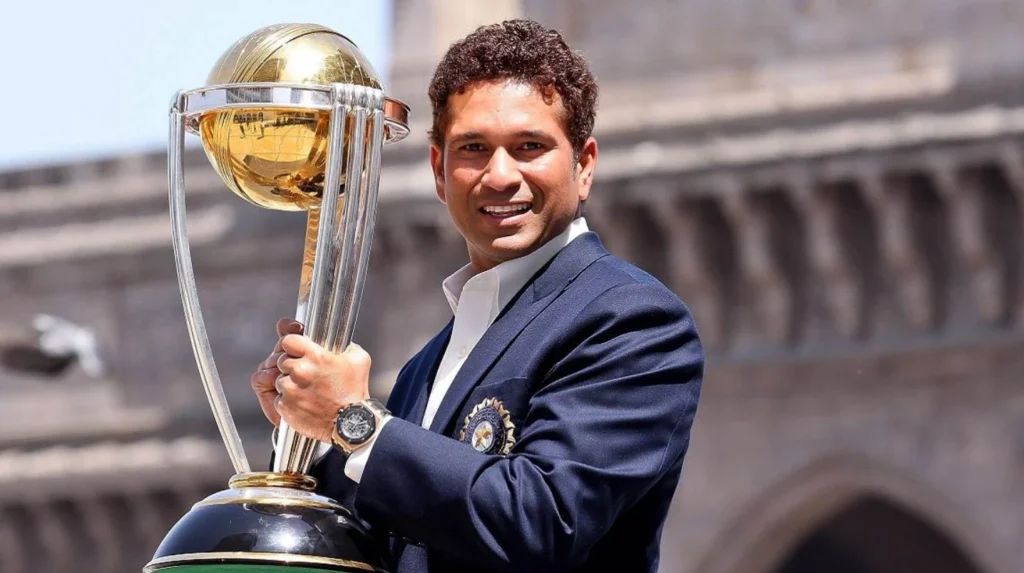
With the most runs and centuries in international cricket, he has set records that may never be broken. For 24 years, he carried the hopes of a billion fans and changed the game with his bat. Sachin was not just a player, but an emotion for India. Come with us and relive the incredible journey of Sachin Tendulkar, who is a cricketing icon.
Early Life and Career
Sachin Tendulkar’s start as a teenager was marked by exceptional talent, determination, and a hunger to prove himself on the big stage. Born on 24 April 1973 in Mumbai, Tendulkar quickly rose through the ranks of school and local cricket. At just 14 years old, in 1987, he was picked in the Bombay squad for the Ranji Trophy season, India’s premier domestic tournament. However, despite being part of the team, he did not get a chance to play in any match that season and was only used as a substitute fielder.
Things changed dramatically a year later.
On 11 December 1988, at the age of 15 years and 232 days, Sachin made his first-class debut for Bombay against Gujarat at the Wankhede Stadium. He made an immediate impact by scoring a remarkable unbeaten 100, making him the youngest Indian to hit a century on debut in first-class cricket. This was just the beginning. He went on to score centuries in his debuts in the Duleep Trophy and Irani Trophy as well, a unique record that no other Indian cricketer has achieved.
During the 1988-89 Ranji Trophy season, Sachin emerged as Bombay’s highest run-scorer with 583 runs at an impressive average of 67.77. His consistency and class at such a young age caught the attention of the cricketing world. In the Ranji Trophy final of 1990-91, he nearly helped Bombay pull off a dramatic win against Haryana with a blistering 96 off just 75 balls, chasing a huge target in limited time.
Sachin’s leadership qualities also came to the fore early. In 1995, he captained Bombay in the Ranji Trophy final and scored twin centuries, 140 and 139 against Punjab, guiding his team to victory. That same year, he also captained Mumbai in the Irani Cup. His brilliance wasn’t just limited to Indian domestic cricket. In 1992, at only 19, Tendulkar made history by becoming the first overseas player to represent Yorkshire in English county cricket. Traditionally, Yorkshire had never picked a non-Yorkshire-born player, but Sachin’s talent broke barriers as he played 16 matches and scored 1,070 runs at an average of 46.52.
International Career and Achievements
Being one of the youngest players to make his debut for India at just 16 years and 205 days, Sachin Tendulkar quickly rose to prominence as a cricketing prodigy. His early tours in 1989 against Pakistan showcased his fearless batting, even as he faced fierce fast bowlers like Waqar Younis. Despite enduring physical blows, including a bloody nose from a bouncer, Tendulkar’s resilience earned him respect. His breakthrough came in 1990 with a match-saving century against England, making him the second-youngest Test centurion.
Throughout the 1990s, Tendulkar solidified his reputation as a world-class batsman. His performances in Australia during the 1991–92 tour, where he scored centuries in Sydney and Perth, proved his ability to dominate top-tier bowling attacks. By 1996, he was India’s leading run-scorer in the World Cup, though the team fell short in the semi-finals. His rivalry with Shane Warne in 1998, including his famous “Desert Storm” innings in Sharjah, where he hammered 143 and 134 against Australia, remains iconic.
| Format | Matches | Innings | Not Out | Runs | HS | Average | Balls Faced | Strike Rate | 100s | 50s | 4s | 6s | Catches |
|---|---|---|---|---|---|---|---|---|---|---|---|---|---|
| Tests | 200 | 329 | 33 | 15921 | 248* | 53.78 | – | – | 51 | 68 | – | 69 | 115 |
| ODIs | 463 | 452 | 41 | 18426 | 200* | 44.83 | 21368 | 86.23 | 49 | 96 | 2016 | 195 | 140 |
| T20Is | 1 | 1 | 0 | 10 | 10 | 10.00 | 12 | 83.33 | 0 | 0 | 2 | 0 | 1 |
Despite his individual brilliance, Tendulkar’s tenure as captain (1996–2000) was less successful, with mixed results in both Tests and ODIs. However, his influence on the team remained unmatched. In 2001, he played a key role in India’s historic Test victory over Australia in Kolkata, contributing with both bat and ball. By 2002, he surpassed Don Bradman’s record of 29 Test centuries, a milestone celebrated with a Ferrari gift from Fiat.
The 2003 World Cup was another highlight, where Tendulkar amassed 673 runs, earning the Player of the Tournament award, though India lost the final. Injuries and a brief form slump followed, but he bounced back strongly, including a memorable 200* against South Africa in 2010, the first ODI double century.
Tendulkar’s crowning achievement came in 2011 when he finally won the World Cup, calling it the “proudest moment” of his career. His 100th international century in 2012 against Bangladesh was a historic feat, though it took an emotional toll due to prolonged public anticipation.
Retirement and Personal Life
After playing for the Indian team for more than two decades, Sachin Tendulkar bid farewell to international cricket in a phased manner. On 23 December 2012, following a series of disappointing performances against England, he announced his retirement from One Day Internationals (ODIs), though he stated he would still be available for Test matches. His retirement surprised many, including former skipper Sourav Ganguly, who believed Tendulkar could still contribute in the upcoming series against Pakistan.
Cricketing legends like Anil Kumble and Javagal Srinath reflected on the immense legacy Tendulkar left in the ODI format, especially since he had redefined batting after becoming an opener in New Zealand in 1994. Tendulkar had earlier played his only Twenty20 International in 2006 against South Africa, after which he chose not to participate in the format again. He later retired from the Indian Premier League (IPL) in May 2013, after leading Mumbai Indians to their maiden IPL title with a win over Chennai Super Kings.
His final appearance in Twenty20 cricket came during the 2013 Champions League T20 tournament. On 10 October 2013, Tendulkar announced his retirement from all forms of cricket following a two-Test series against the West Indies in November. At his request, the matches were scheduled in Kolkata and Mumbai, with the final one taking place at his home ground. He ended his career with a score of 74 in his last Test innings, falling just 79 runs short of a remarkable 16,000 Test runs milestone. Virat Kohli followed him to the crease in that final innings. Beyond the field, Tendulkar married Anjali Mehta, a paediatrician, in 1995 and the couple has two children, Sara and Arjun.
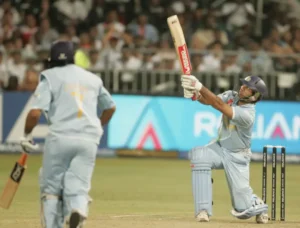
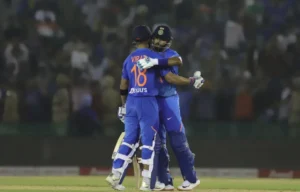

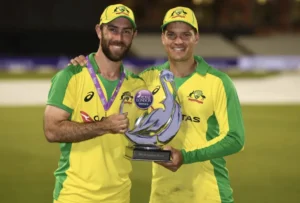
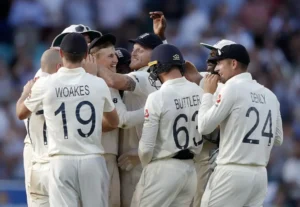
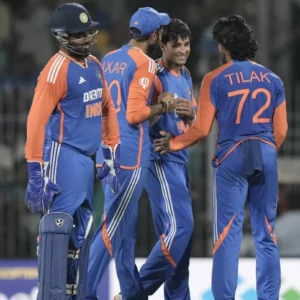
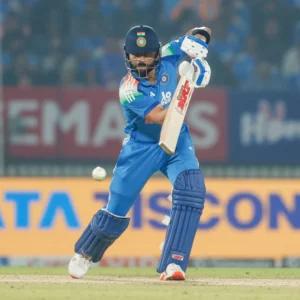
Comments